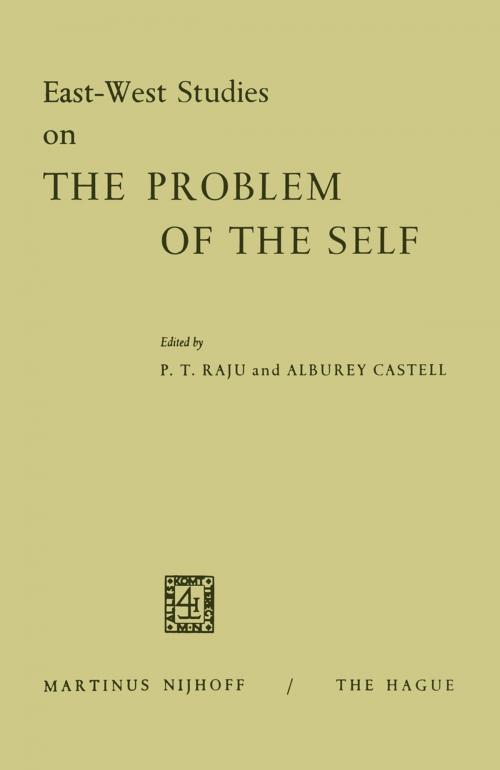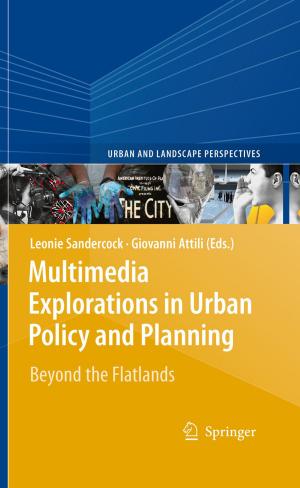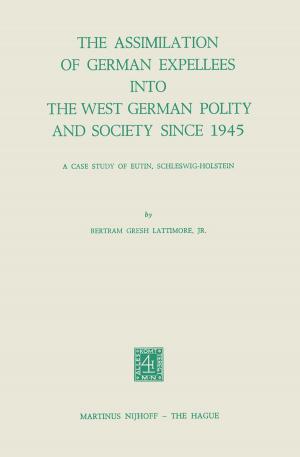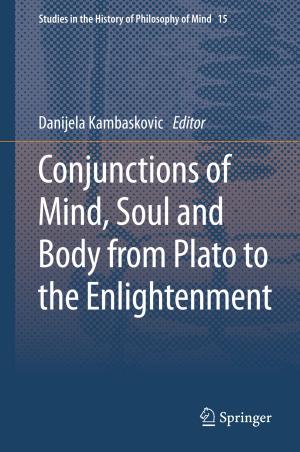East-West Studies on the Problem of the Self
Papers presented at the Conference on Comparative Philosophy and Culture held at the College of Wooster, Wooster, Ohio, April 22–24, 1965
Nonfiction, Religion & Spirituality, Philosophy, Eastern, Social & Cultural Studies, Social Science| Author: | Poolla Tirupati Raju | ISBN: | 9789401506151 |
| Publisher: | Springer Netherlands | Publication: | December 6, 2012 |
| Imprint: | Springer | Language: | English |
| Author: | Poolla Tirupati Raju |
| ISBN: | 9789401506151 |
| Publisher: | Springer Netherlands |
| Publication: | December 6, 2012 |
| Imprint: | Springer |
| Language: | English |
The general characteristics of the decades after the last World War, so far as the human situation goes, include two phenomena: these decades are marked by man's dissatisfaction with himself, his confession of ignorance of himself, his anxiety about his future, and also his earnest search for the ground of his being, which can give him a feeling of security with reference to his life here and hereafter; they are also marked by man's pride about his achievements in science and tech nology, a hope of a better life on earth, and a faith in himself as capable of engineering the individual and society for realizing peace, harmony, and happiness for all men. The contemporary thinking man is conscious of the predicament these two kinds of characteristics have created for him, admits failures, hopes for improvements, and works for them. In carrying out this work, he has to and wants to know what human life is, what the meaning and purpose of life are, and why his struggles and achievements have not succeeded in giving every man a reasonable amount of comfort and happiness. He has come to realize also that the accumulation of material comforts does not necessarily lead to happi ness, although happiness for man - except for the monk, fakir, or sannyiisin - is not possible without material comforts. Here we have the problem.
The general characteristics of the decades after the last World War, so far as the human situation goes, include two phenomena: these decades are marked by man's dissatisfaction with himself, his confession of ignorance of himself, his anxiety about his future, and also his earnest search for the ground of his being, which can give him a feeling of security with reference to his life here and hereafter; they are also marked by man's pride about his achievements in science and tech nology, a hope of a better life on earth, and a faith in himself as capable of engineering the individual and society for realizing peace, harmony, and happiness for all men. The contemporary thinking man is conscious of the predicament these two kinds of characteristics have created for him, admits failures, hopes for improvements, and works for them. In carrying out this work, he has to and wants to know what human life is, what the meaning and purpose of life are, and why his struggles and achievements have not succeeded in giving every man a reasonable amount of comfort and happiness. He has come to realize also that the accumulation of material comforts does not necessarily lead to happi ness, although happiness for man - except for the monk, fakir, or sannyiisin - is not possible without material comforts. Here we have the problem.















